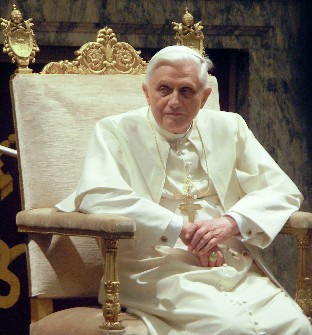Irreducible faith: Benedict the theologian

In 1968, Joseph Ratzinger, professor of theology at the University of Regensburg, wrote a modestly sized treatise on the Apostles' Creed called Introduction to Christianity. Its impact was anything but modest. The book so captivated Pope Paul VI that he made its author archbishop of Munich (and later a cardinal, one of his last appointments to the College of Cardinals), and just a few years later Pope John Paul II summoned the same man to Rome to head the Congregation for the Doctrine of the Faith (CDF). After a long career in this position, Ratzinger himself was elected pope in April 2005.
Not many books have changed history, but this one certainly did, not just for the author personally but also for the wider church. What made this book so remarkable was not just its deft use of the Apostles' Creed to explain Christianity to the lay reader or its acute analysis of unbelief and the secular mind. An even greater virtue of the book was the future pope's keen analysis of why the promising spirit of Vatican II failed to bring about a reunited Christianity and a re-Christianized Europe: a weak and less than full-bodied Christology.
According to his analysis, post-Enlightenment Christianity in Europe had been conned into adopting an evangelical strategy too superficial in its approach and too intimidated by Enlightenment-based objections to Christian doctrine, a strategy that usually goes under the name of "accommodationism."





